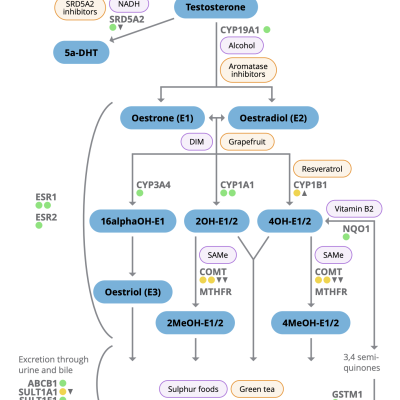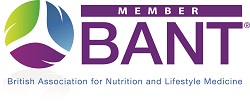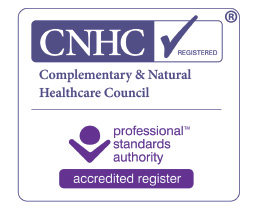Initial 1-2-1 Consultation
If you are new to the clinic, you will need to book an initial consultation. After booking, you will receive a full health questionnaire which you are required to complete at least 48 hours before your consultation date.
At the consultation, we will spend 75 minutes together, discussing your health goals, symptoms, food choices, lifestyle, health history – and really get to know each other. We will then agree a plan of action to move you forward to help you achieve your goals.
I may suggest some testing at this stage, perhaps some supplements, along with food and lifestyle changes. The initial consultation is key for this process and if you would like to discuss this further, before you book, I would encourage you to book a Zoom call with me so we can discuss ‘in person’ further.

An Initial Consultation is £185
to book email emmahammondhealth@gmail.com to BOOK INITIAL CONSULTATION
You will receive a 5 Day Food Reset plan with the initial consultation
Information on testing I feel is relevant to you
Advice on supplements

Gut Health
There are so many symptoms that can be linked to an unhappy gut – bloating, wind, cramps, IBS, acid reflux, allergies, food intolerances, skin rashes, acne, eczema, rosacea and fatigue to name but a few. A happy and healthy gut is crucial for general wellbeing overall.
You have the option of coming into the clinic with a Gut Health package, which includes a GI360 stool test and initial consultation. The GI360 stool test is taken over 3 days and gives a comprehensive report of the breakdown of your gut microbes, plus reports on certain parasites, candida, unbeneficial bacterias or viruses found.
Please email emmahammondhealth@gmail.com to book
New Clients £575
existing clients, please email the clinic to book
Hormone Health
Hormone imbalance can affect a woman at any age from early teens to menopause and beyond.
This can result in so many different symptoms such as PCOS, endometriosis, PMS, irregular and heavy periods, acne, hair loss, painful periods, mood swings, anxiety…the list goes on.
Diet and lifestyle, and if necessary a few targeted supplements, can have a huge impact on your hormones but sometimes testing can really be the way forward to getting some answers on your levels of hormones. I use the DUTCH test in clinic, a urine test which reports on levels of your sex and stress hormones, along with levels of metabolites passing through your liver. This is an extremely comprehensive report which shows levels of sex hormones and detoxification, including DHEA, Oestrogens, Progesterone, Testosterone – and Cortisol (your stress hormone), Melatonin and Oestrogen Metabolism pathways.
This is an easy to do at home urine test. The urine is collected on test strips over a 24-hour period or whole month (depending on which test you have chosen) and sent to the US for analysis.
Prices are for UK only. Please contact the clinic for overseas shipping charges before you book.


DUTCH Testing (Dried Urine testing for Comprehensive Hormones)
The price of the test includes the DUTCH test and a full consultation for new clients
DUTCH Complete
This is a 24-hour test suitable for younger girls (who may find testing over a full month stressful), anyone without a cycle, women on HRT, post-menopausal women or anyone taking the Oral Contraceptive Pill.
New clients book here,
Dutch Complete £475
existing clients, please email the clinic to book
DUTCH Mapping
This test is to be taken over a full month and also details the pattern of oestrogen and progesterone over the month.
This test is for cycling women, women who have irregular periods and women using the Mirena coil. It is NOT suitable for women using HRT.
New clients book here,
Dutch Mapping £615
existing clients please email the clinic to book
DNA Testing
I have often found in clinic, genetic testing can be the missing piece to the puzzle in terms of your health.
I work with LifeCode GX, a UK based company focused on nutrigenomics, the study of how genetics and diet can affect a person’s health.
The test itself is very easy to do. You simply rub a swab around the inside of the mouth and cheek area for 60 seconds, no blood sample is required, so it’s also easy for children to do.
The DNA swabs are stable for several weeks and travel well in the post.
You will then receive a copy of your DNA report, with a comprehensive report from LifeCode GX to help you understand the information, along with an on-line consultation from myself to really look at how this information could help you achieve maximum health goals.
Please specify which reports you would require at time of booking
UK Packages available
one report includes a 30 minutes support call £399
two reports include a 60 minutes support call £525
five reports include a 90 minutes support call £925
Metabolism & Longevity reports include a 75 minutes support call £599
UAE bookings
Clients in the UAE, please use the links below to book which includes postage and package. Clients must return the DNA samples THEMSELVES in the envelope provided and cover all costs. This does not have to be returned via specific carrier and the sample is stable for many weeks.
one report includes a 30 minutes support call £448
two reports include a 60 minutes support call £574
five reports include a 90 minutes support call £974
Metabolism & Longevity reports include a 75 minutes support call £648
For all other countries outside of the UK, please contact the clinic before booking to clarify postage costs.
DNA reports available to book

The Nutrient Core Report
This test analyses how gene variants can affect food tolerance (and intolerance), appetite control and blood sugar balance, vitamin and mineral needs, detoxification ability, and susceptibility to inflammation and infection.
Nutrient Core will help you understand the fundamental genetic interactions with diet and lifestyle and indicate whether specific functions require further genetic testing. It includes genes that have been shown to affect:
food response – gluten (coeliac) and lactose intolerance
caffeine – sensitivity and metabolism
microbiome – diversity
vitamin need – vitamins A, B9 (folate), B12 (cobalamin), C, D and K
blood pressure – sodium-potassium balance & salt sensitive hypertension
detoxification – glutathione
metabolism – blood sugar control (insulin), appetite (leptin)
inflammation – specific (infection response) and systemic
circadian rhythm – early bird or night owl predisposition

The Hormones Report
Steroid hormones are a group of hormones derived from cholesterol including progesterone, oestrogen, testosterone, DHEA, and cortisol (and their derivatives). They are involved in the regulation of many physiological processes in both men and women, such as the development and function of the reproductive system, metabolism, inflammation and immune system. Steroid hormones are generally carried in the blood, bound to specific carrier proteins. Further metabolism and catabolism occurs in the liver, in other peripheral tissues, and in target tissues.
Symptoms of steroid hormone imbalance can affect men and women, and include: infertility, low libido and sex drive, low sperm count, acne, excess facial hair in women, PCOS, blood clots, mood swings, depression, substance misuse, poor memory, weight gain (belly fat for men), breast appearances in men, and hormone sensitive cancers, such as breast cancer or prostate cancer.
The Hormones test analyses genes involved in the regulation, synthesis, signalling, transport and metabolism of corticosteroids and sex steroids hormones. It looks at how gene variants affects hormones imbalance and details the nutrients and environmental factors that can influence and improve their balance. The Hormones report is recommended for men and women with hormone imbalance symptoms such as the ones listed above.
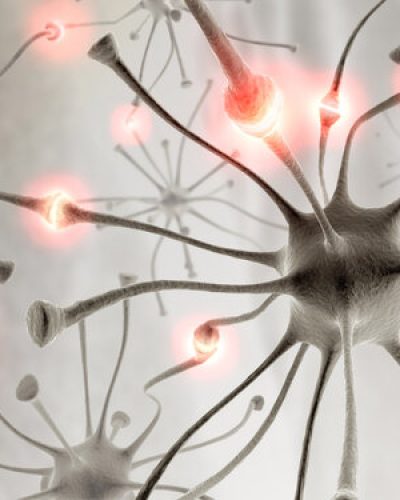
The Nervous System Report
The nervous system supports the transmission of messages around the mind and body, enabling an individual to respond to their environment. A neurotransmitter is a molecule that carries signals between neurons and across nerve junctions (synapses). Excitatory neurotransmitters increase the likelihood a neuron will fire a signal, while inhibitory neurotransmitters have the opposite effect. In order for us to interact effectively with our environment these must remain in balance.
Symptoms of neurotransmitter imbalance can include: mood imbalances, depression, mania, attention deficit and obsessive compulsive disorders, addictive behaviours, motor control disruption, anger, aggression and restlessness.
It analyses gene variants that impact serotonin (contentment) and melatonin (sleep), dopamine (motivation), noradrenaline and adrenaline (fight or flight); glutamate (the major excitatory neurotransmitter); GABA (the major inhibitory neurotransmitter) which is critical for relaxation; and endoCannabinoids (AEA/ anandamide) which regulate other neurotransmitters. The report provides detailed recommendations for nutritional support to alleviate symptoms and to optimise mental health.
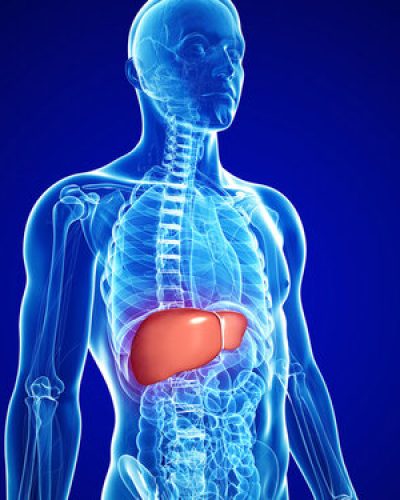
The Detoxification Report
Detoxification is the physiological removal of toxic substances from the human body. It is mainly carried out by the liver, and to a lesser extent the small intestine, kidneys and lungs. Substances such as nutrients, food additives, pesticides, medications, air pollutants, alcohol and hormones are transformed from being fat-soluble to water-soluble, allowing them to be more easily excreted from the body. The process occurs in two major phases: Phase I primes toxic molecules for deactivation and Phase II finishes the deactivation and prepares for elimination.
Poor detoxification can cause symptoms such as headaches, muscle aches, fatigue, allergies, skin disorders, weight gain, bloating, acid reflux and heartburn, excessive sweating, chronic infections, subfertility, low libido, poor mental function and low stress tolerance.
The Detoxification test examines genes which impact Phase I reactions in the liver, including the cytochrome P450 oxidases, Phase II conjugation, including the UDP-glucuronosyltransferases (UGTs) and glutathione S-transferases (GSTs) and the Phase III antiporter gene ABCB1, which affects the transport of medicines and other substances into and out of cells. It also include genes that help to neutralise ROS – due to toxic intermediates (generated in Phase 1). The report identifies personalised nutritional support required to optimise detoxification.

The Thyroid Report
The thyroid is an endocrine gland in the neck that produces two thyroid hormones – triiodothyronine (T3) and thyroxine (T4), and calcitonin. Thyroid hormones control the metabolism of almost every cell in the body, with wide-ranging metabolic, developmental and cardiovascular effects. Thyroid activity is altered by genetics and environmental factors: nutrients (tyrosine, selenium and iodine), toxins (fluoride, chlorine or moulds), psychosocial or physical stressors, bacteria and viruses. Imbalance can result in HPT axis (Hypothalamus-Pituitary-Thyroid) dysfunction, autoimmune thyroid diseases (AITDs) such as Graves’ and Hashimoto’s, thyroid sensitive cancers (although rare), and impact transport, activation and response to thyroid hormones. Deficiency or excess of thyroid hormones can result in many different symptoms. Hypothyroidism (under activity) can cause weight gain, fatigue, low libido, cold intolerance, dry skin, constipation and depression. Symptoms of hyperthyroidism (over activity) include anxiety, heat intolerance, heart palpitations, insomnia and weight loss. The Thyroid Balance report analyses the genes involved in the thyroid hormone lifecycle: synthesis – centrally (in the thyroid) and in activation in peripheral tissues, transport and metabolism, processing of cofactors (vitamins D and A) and inhibitors (stress and toxins). It also examines genes that confer susceptibility to inflammation and autoimmunity.
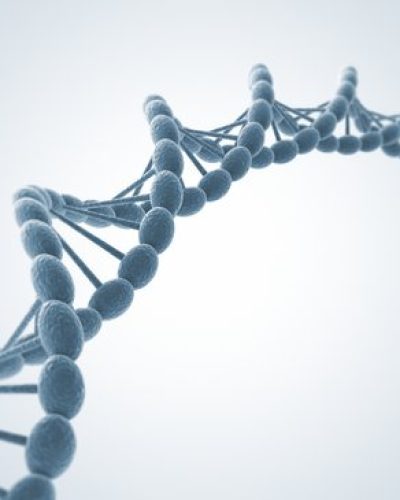
The Methylation Report
Methylation is the process of adding methyl groups, consisting of one carbon and three hydrogen atoms, to other molecules. It is involved in almost every metabolic process in the body, occurring billions of times every second in our cells and contributing to numerous crucial functions.
Imbalances in methylation – too little or too much – can increase susceptibility to chronic health conditions such as heart disease, circulatory problems, chronic fatigue, infertility, immune and autoimmune conditions, food and chemical sensitivities, and mood and psychiatric disorders, as well as cancer and premature ageing.
The Methylation test examines genes involved in five sub-cycles – folate, methionine, neurotransmitter, transsulphuration and urea. Genetic results will inform whether someone is likely to be poor or overly efficient at processing cofactors – B6, B9 (folate) and B12 (cobalamin), methionine, betaine, choline, zinc and magnesium; and inhibitors – chemicals, moulds, drugs, hormones and heavy metals and provide guidance on how to support or bypass bottlenecks or weaknesses.
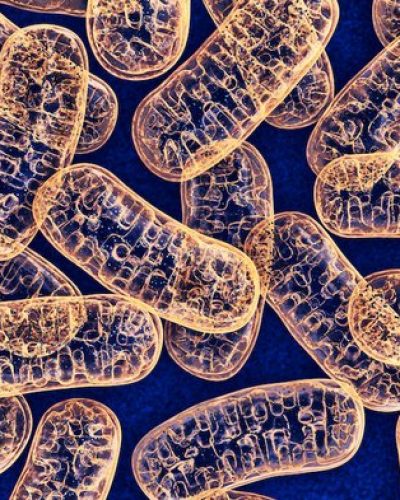
The Metabolics and Longevity Report
The Metabolics Report transforms our understanding of how genes confer metabolic individuality and underpin energy regulation, longevity and healthspan.
Metabolism refers to all cellular chemical reactions and is essential for life. It involves many interconnected pathways that can be divided into ‘anabolism’ (‘build up’ e.g synthesis of sugars, fats, proteins and nucleic acids) and catabolism (‘break down’ e.g., releasing energy in the form of ATP). These complex processes, and the balance between them, are the key to energy metabolism and healthy cell structure and function.
The comprehensive Metabolics report presents the genes that can powerfully influence key pathways driving human metabolism. It incorporates over 40 genes and 50 SNPs across 6 pathways, including appetite regulation, nutrient sensing, sugar and fat metabolism, cholesterol and bile, mitochondria and inflammation.

The Histamine Report
Histamine has many functions: as a neurotransmitter, communicating messages to and from the brain and nervous system; triggering the release of stomach acid to help digestion; and it can also be released after stress, injury or allergic reaction as part of the body’s immune response.
Histamine intolerance is the body’s reaction to an imbalance between accumulated histamine and the capacity to break it down. When the body is unable to break histamine down quickly enough it becomes toxic. Symptoms of histamine toxicity may include skin irritation or breathing difficulties (mimicking an allergic reaction), digestive problems, headaches, insomnia and anxiety.
The Histamine Intolerance test analyses the genes and nutrients needed to breakdown and remove histamine, showing where disruptions occur and how to support optimal function. Diamine oxidase (DAO), which primarily breaks down histamine in the gut, can be impaired by gastrointestinal disease or ‘blockers’ such as alcohol, smoked or fermented foods, black tea, green tea and some medications such as non steroidal anti-inflammatory medications (ibuprofen or aspirin). Insufficient histamine-n-methyl- transferase (HNMT) in the nervous system and lungs can also lead to histamine overload.
Sample Report for
Oestrogen Lifecycle
